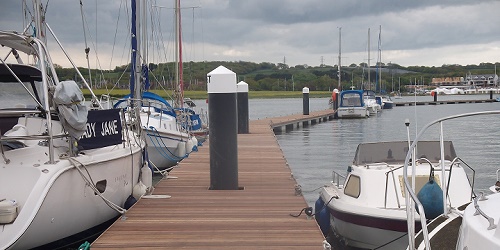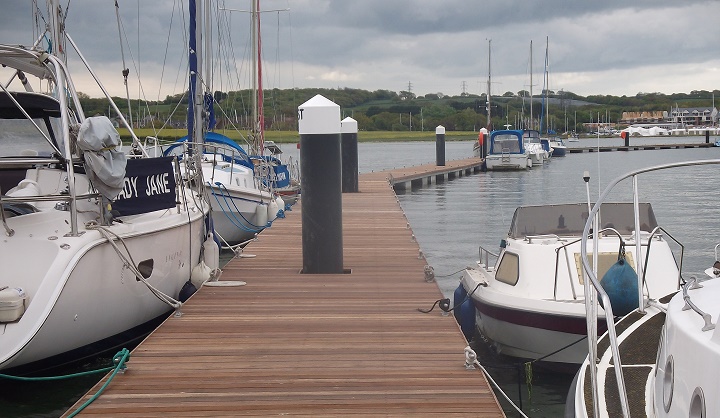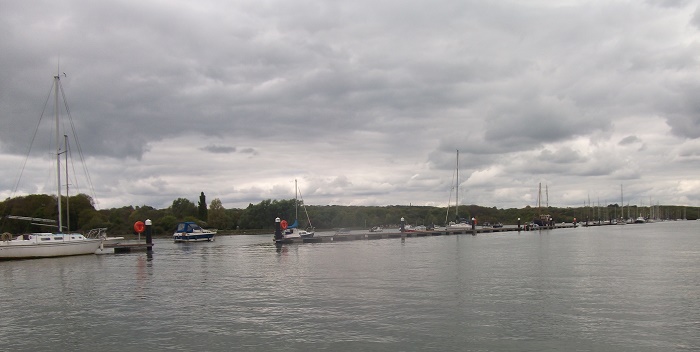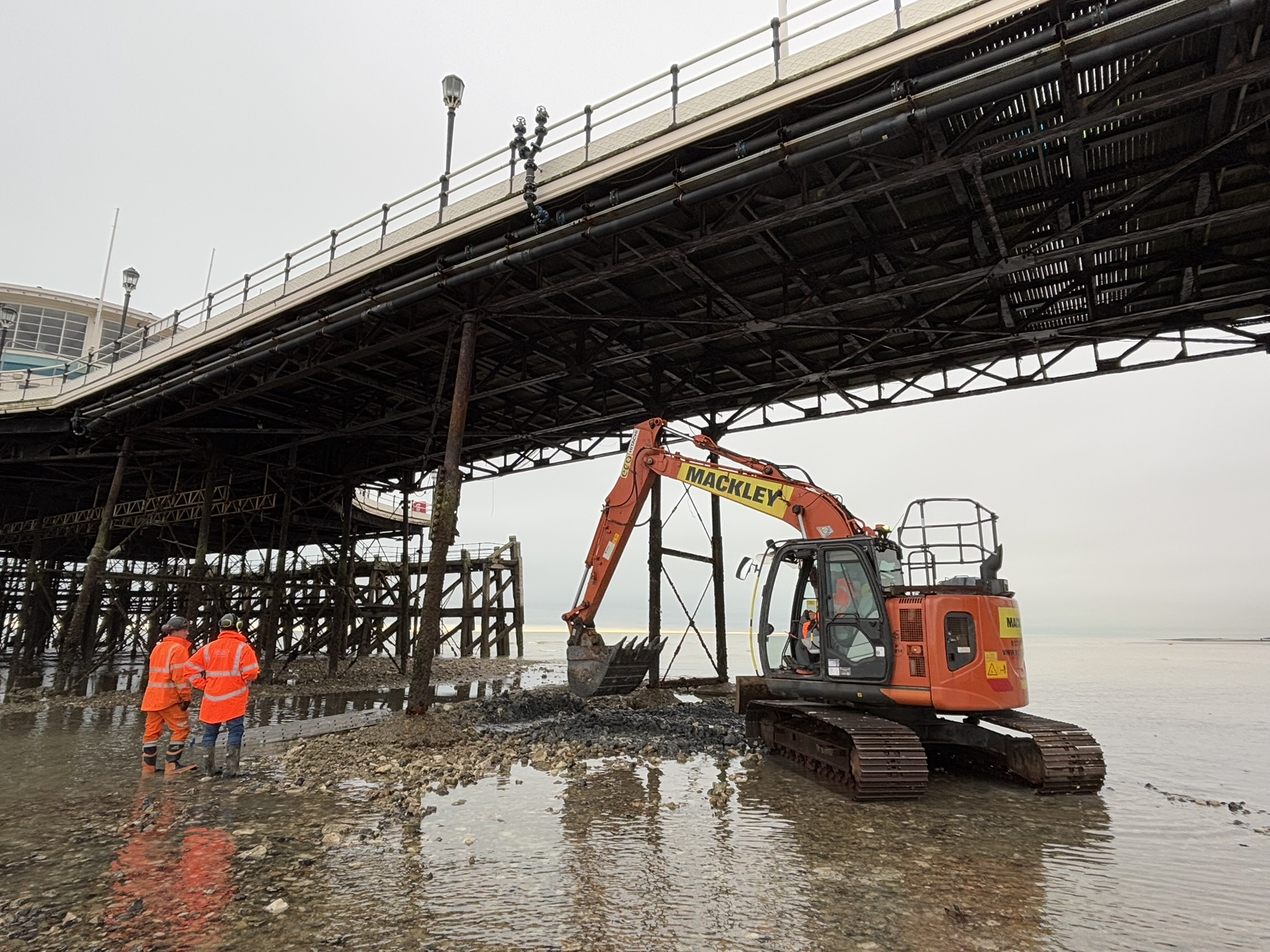Working on behalf of the Isle of Wight Council, Mackley has recently completed an eight-week project to create new moorings on the River Medina.
The River Medina is the main river of the Isle of Wight, rising at St Catherine’s Down near Blackgang and Chale, and flowing generally northwards through the capital Newport, towards the Solent at Cowes.
The ‘Folly Moorings’ lie on a quieter stretch of the river at Whippingham, which is only accessible by tender or water taxi.
The project involved installing steel piles and wooden floating pontoons to improve the existing moorings, in an area designated as a Solent Maritime Special Area of Conservation (SAC), an area of ecological sensitivity.
With more than 70 berths often occupied during the summer months, the works were carried out during the winter when far fewer berths are occupied. This ensured that any vessels that needed to be moved to accommodate the works could still be moored on the Folly.
The first stage of the £640,000 project was the removal of life-expired existing piles and pontoons, with timber and steel sent for recycling.
The Mackley team then installed 34 no. steel tubular piles coated with an epoxy paint system designed for use in a marine environment. The steel framed wooden decked floating pontoons were installed with fendering to each, along with ancillary items including safety ladders and lifebelts. The new floating moorings have a life expectancy of 25 years.
Steve Martin, Mackley Contracts Manager with responsibility for the project, said: “The works took place in a sequential manner over the winter when activity on the water is lower, in order to avoid disruption to wider river operations.
“In order to reduce vehicle movements at the site most of the materials were delivered by barge, and when deliveries had to be made by road our project team ensured local residents were advised of the timings.
“Construction took place in conjunction with the tides and piling was carried out from a floating barge. As the area was ecologically sensitive, the ‘vibro piling’ method was used to minimise noise and disturbance in the surrounding environment.”
03 May 2017





